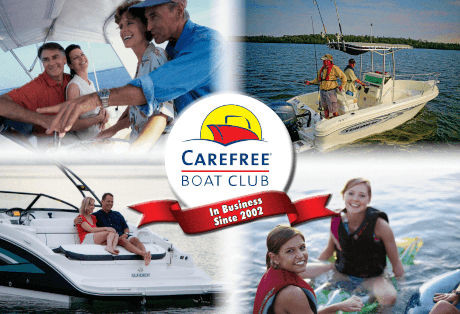Everyone Should Maximize Boat Safety. That Maximizes Fun!
 Whether you’re an old hand at boating or are just beginning to learn the joys of life on the water, everybody should be well acquainted with the rules of boating safety before heading out. Here are 10 essential boat safety tips to make sure your trip stays safe. And staying safe means more fun!
Whether you’re an old hand at boating or are just beginning to learn the joys of life on the water, everybody should be well acquainted with the rules of boating safety before heading out. Here are 10 essential boat safety tips to make sure your trip stays safe. And staying safe means more fun!
10 Top Boat Safety Tips
- Be A Weather Owl
Remember to find out what the local weather is doing before you set out. Television and radio are both dependable sources for getting this info. But don’t forget that a forecast isn’t an absolute. It’s a highly likely prediction. So even as you’re enjoying the water, keep an eye out for darkening skies, changes in the wind or a quick drop in the temperature. Don’t take chances. Get out of the water.
- Follow a Pre-Departure Checklist
A pre-departure checklist will help assure that every boat safety rule and precaution has been addressed. This way you, your crew and your guests can be as ready as possible for anything that comes up while you’re on the water. And you can better focus on the fun.
- Use Common Sense
Common sense on the water means making sure you’re running at a safe speed, being aware of other crafts and vessels, and minding buoys, directional markers and other navigation aids. Watching out for other boaters and observing the intent of navigational aids will help keep your trip safe and worry-free.
- Designate an Assistant Skipper
There’s a reason that captains of commercial vessels have first officers. If the captain becomes unable to operate the ship in any way, the second-in-command can handle the emergency. The owner or operator of leisure craft can help ensure the safety of crews and guests by following these pros’ example.
Before heading out, designate a capable assistant skipper that knows how to handle your boat and understands good boat safety. If something should happen that prevents you from operating your boat, you will have ensured that everyone on board will get back to the docks safely.
- Develop a Float Plan
We all understand the temptation to hop in a boat and just go. No strings, no plans, no particular destination. Right? But even if your plans are a bit open-ended, you still want to develop a float plan, and share that plan with someone staying ashore. Whether friend, family or the marina staff, someone should know what time you went out, a general idea of where you’ll be cruising and when you anticipate returning.
A good float plan should include the following:
Names, addresses, and phone numbers of everyone aboard. Don’t forget to include yourself!
The name of your vessel, the make of the vessel and its registration info.
Your boat outing’s route, including primary anchorages and stops.
What type of communication and signaling equipment do you have on the boat? Be sure to let someone staying ashore know if you have an Emergency Position Indicating Radio Beacon (EPIRB) or Personal Locator Beacon (PLB). It’s always recommended that you have this type of boat safety equipment onboard!
- Make Proper Use of Life Jackets
The main cause of drowning during boating excursions is the lack of life jackets. Don’t let you, your family or guests add to this statistic. Assign everyone on board a life jacket, make sure the jackets fit properly and, most importantly, wear them! Remember, life jackets are an essential part of your boat safety equipment.
- Avoid Alcohol
Your chances of having an accident during boating are doubled when you drink and boat. Think about it. Would you pop a cold one while actively driving down the highway? The same risks of disaster that apply to drinking while driving apply to boating. In fact, studies indicate that the effects of alcohol are intensified by sun and wind exposure.
Be a mindful, responsible skipper to your crew, family and friends. Save the alcohol for later.
- Learn to Swim
This could also be filed under the tip above that’s entitled “Use Common Sense.” Boating means spending time around the water, and spending time around the water means knowing how to swim improves not just fun, but personal safety. There are many associations, like the American Red Cross, that have swim lessons that fit for every age and ability. Find where classes are in your area, and get the whole family involved.
- Take a Boating Course
Would you think it was a good idea if your state didn’t require vehicular drivers to know how to operate a car before getting on the road? Today, many states now require at least some kind of boat safety training, as well as certified proof of that training. It’s true that this isn’t a requirement in all states. But whether it’s mandated law or not, your odds for staying safer and enjoying the boating life longer are significantly increased by taking a boat safety course. These can be taken in many communities as well as online. Be a good skipper for your family and friends. Take a boat safety class.
- Consider a Free Vessel Safety Check
The United States Coast Guard offers free vessel safety checks. These free-of-charge water craft exams will confirm that any state and federal-mandated boat safety equipment onboard and operational. The Coast Guard even provides experts that will examine your vessel and offer valuable boat safety advice. All without charge.
At the very least, you should check out their online virtual safety checks. Then get out on the water and have some fun!
